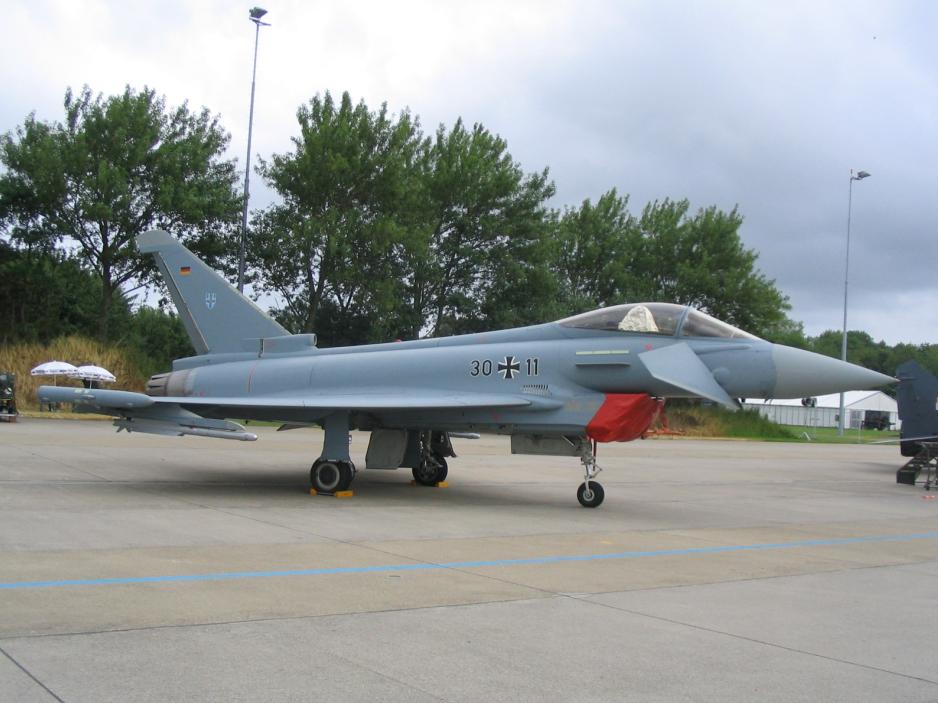Democrat November-December 2012 (Number 132)
European Army
Luftwaffe, Weirmar Five, EU Military HQ, EU Battle Groups

German government advisors are pleading for the creation of a joint German-French air force. In light of an alleged "deterioration of EU military efficiency," the "two major nations" in Europe are "required to take the leadership," according to a position paper published by the German Institute for International and Security Affairs (SWP).
"Clear signals" must finally be given and "concrete proposals for security policy cooperation" presented, rather than non-binding declarations of intent. For example, a fusion of the air forces of Germany and France would provide a good opportunity for promoting military as well as arms industry cooperation. Experts in Berlin have been complaining for some time that desperately needed cooperation of the arms industries throughout the EU still hasn't really materialided, despite persistent political appeals.
Aside from the advantages for the arms industry, this plea for the creation of a German-French air force is aimed at the recent French-British military cooperation, considered in Berlin as a means to prevent a German predominance of the EU's war policy. It is clear that practical measures have now been taken to split the British-French alliance. The latter includes 'sharing' an aircraft carrier which is key to air dominance as happened in military action against Libya and would be important in any military action in Syria which is of special interest to France.
The thrust to form this joint German-French air force stems from a meeting of the Wiemar Five consisting of German, France, Poland, Spain and Italy. These EU Member States fully support an EU Military HQ in Brussels This group of five want to see an expansion of the European military-industrial-complex to provide the European Army.
The proposal to set up an EU military HQ was vehemently opposed by Britain. Such an HQ is seen as a competitor to NATO and weakening US influence as Britain's military partner across the world. In real terms it is the US military machine which protects Britain's vested financial and capital investments outside these shores. The US Pentagon has made clear it is not happy about the prospect of an EU military competitor outside the control of US military commanders.
A German-Italian conference in Rome organized by two influential think tanks discussed the importance of Britain for the EU. According to the report, the Germans thought that Britain must stay in the EU because without the British military there could be no European Army strong enough for what they want including the EU's foreign policy. The Italians are said to be of the opinion that the British military is in a bad state and that the EU might cope very well without it. The report from a German perspective suspects that the Italians only want to be with Germany and France as part of the "big three" of the EU again, something they will not be as long as Britain remains a Member State. This is further proof that an intensive debate on the topic of the European Army and EU foreign policy is currently taking place.
The Peace and Neutrality Alliance (PANA) of Ireland has published a pamphlet on EU Battle Groups. This 28 page publication can be found at PANA's' website www.pana.ie
It was a former President of the EU Commission, Jacques Delors, who stated that a European Army is required to fight the resources wars of the 21st century. CAEF published a pamphlet on this subject and has the intention of placing this on the CAEF website.
More recently the German Chancellor said that the eurocrisis would provide opportunities including that of further advances towards a European Army.